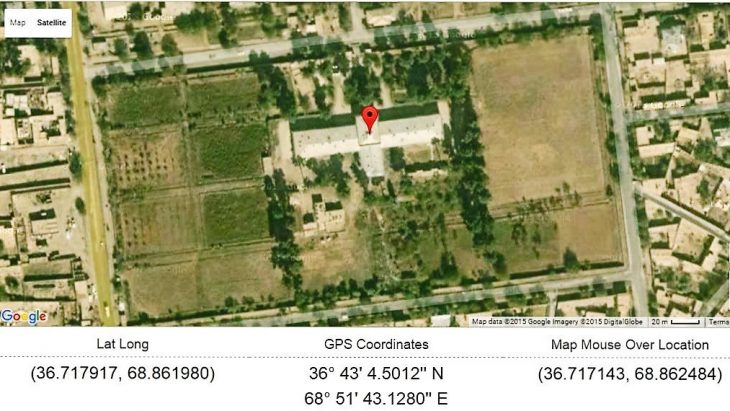Following a recent resolution against attacks on healthcare in war zones, the UN should ensure compliance by referring perpetrators to the International Criminal Court for prosecution.
That’s one of the recommendations in a report released today by the Safeguarding Health in Conflict Coalition, which reviewed attacks on healthcare in 19 countries in 2015 and the first three months of this year. Other “urgent actions needed” include creating a system for reporting acts of violence, and implementing an international body to investigate attacks.
Without such measures, the resolution, passed unanimously by the Security Council on 3 May, is destined to fail.
“The resolution itself will not stop attacks, unless national governments and international bodies take their obligation to protect healthcare seriously, prosecuting the war criminals who target medical professionals,” Laura Hoemeke of Intrahealth International, a member of the coalition, told IRIN.
Attacks included airstrikes and executions, as well as looting and burning facilities. They were carried out by armed groups of all stripes, including state militaries.
As a result, health facilities were closed and the workers fled, depriving millions of people of access to healthcare. In Yemen, for example, 14.1 million people cannot get medical treatment; about half the doctors in both Iraq and Syria have emigrated.
Although international law forbids attacks on healthcare, incidents are on the rise. The report notes:
The events of 2015 and early 2016 are especially alarming: parties to conflict bombed hospitals in five countries, killed health workers for seeking to provide impartial care, committed assaults in hospitals and against patients and staff, and violently obstructed access to healthcare.”
The drastic increase in the number of attacks prompted the UN resolution, which pushes states to investigate attacks on healthcare and prosecute the perpetrators. But simply asking states to take action is unlikely to work.
“There’s no doubt that the international community’s failure to halt such attacks has sparked a chain reaction of impunity,” said Hoemeke. “Perpetrators clearly believe they will suffer no consequences if they deliberately attack patients, doctors, nurses, and hospital staff.”
Resolving to do nothing
The resolution was welcomed in humanitarian circles, where it is seen as a good first step. But it will go nowhere unless further steps are taken to enforce it
Helen Durham, head of legal policy with the International Committee of the Red Cross, said the resolution sends a “strong political message”.
“This will must now be translated into practical measures,” she said.
For example, she said, soldiers should be trained in the protection of healthcare before military operations. “This will contribute to internalising behaviour that would minimise disruptions to healthcare facilities in the heat of battle.
The resolution may put pressure on some member states to take such action, but it’s unlikely to convince other states or armed groups to do so. International law says health workers must be allowed to provide care to all sides of a conflict, and it holds that combatants cease being combatants once they are wounded. But some actors in the theatre of war appear to disagree with those tenets or at least ignore them
“Our analysis is there is an evolution in the nature of warfare,” said Bruno Jochum of Médecins Sans Frontières Switzerland. “The simple act of providing medical care without discrimination is seen in certain doctrines or evolutions of the practice of warfare as providing material aid to the enemy."
Although MSF and the ICRC backed the UN resolution as a means towards changing that attitude, it is unlikely to really do so as it essentially underscores existing laws that are increasingly and flagrantly violated.
Accountability
Persuading armed groups to follow International Humanitarian Law rests on accountability. After all, if there is no concern about repercussions, a commander with a military or another armed group may find more incentive to violate IHL than to uphold it.
Durham said accountability depends largely on including documentation in military operations, and oversight measures such as investigations. Furthermore, states must uphold their obligations under the Geneva Convention by incorporating “criminal sanctions” into domestic law.
“States must ensure that sanctions are effectively applied and have a deterrent effect, and that investigations carried out are impartial and effective,” she said. “International bodies, where competent, could usefully complement the work of national institutions in this regard.
Dustin Lewis, a senior researcher at the Harvard Law School Program on International Law and Armed Conflict, pointed out that certain international institutions already exist – it’s just a matter of using them.
After a US airstrike last year on a hospital in Kunduz, Afghanistan, MSF urged an investigation by the International Humanitarian Fact-Finding Commission, although it never materialised. The International Criminal Court is also authorised to prosecute cases of attacks on places where wounded and sick people are gathere
“Yet, over the decades that it has existed, that Commission has never been activated, and the ICC does not have jurisdiction over all armed conflicts,” Lewis noted.
Accountability is built on facts, but without a mechanism like the Commission that can operate independently, there is too much incentive to obscure the facts, which is often what happens when militaries are called upon to investigate themselves
SEE: NATO probes raid on Afghan clinic, speaks to few, finds out little
“There is nothing effective today in place that allows us to establish the facts,” said Jochum of MSF. “It can be blocked and usually is blocked systematically.”That pattern seems unlikely to change unless the UN enacts at least some of the recommendations laid out in the Safeguarding Health in Conflict Coalition report.
(Additional reporting by Annie Slemrod.)
The article is published by IRIN






